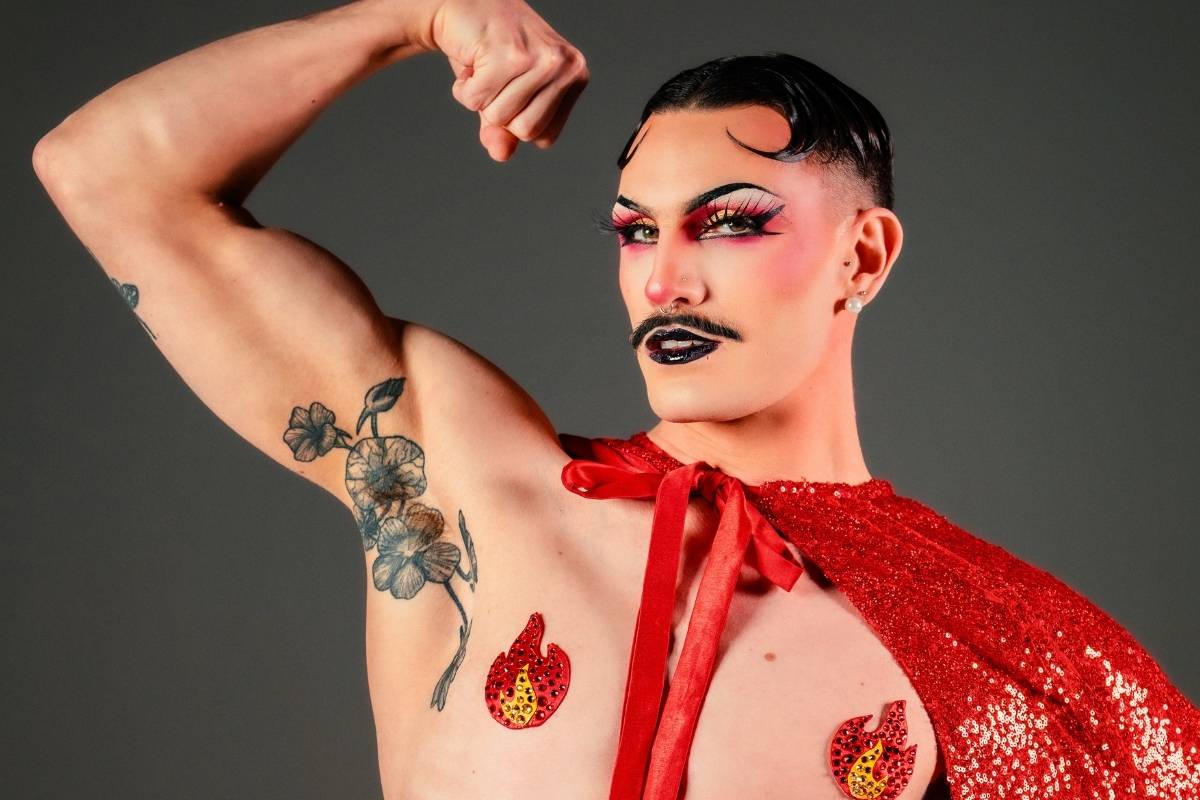In 'Papercut', the actors fight both expectations and each other, as their intimacy and insecurities collide in the back seat of a car; the only setting for the short film's entirety.
Here, Damian answers a few questions before his film is shown in Brisbane as part of Flickerfest, the short film festival.
Where did the idea for this film come from for you?
These two 'Papercut' characters have been with me for a while. I was asked to write for a web series, and I pitched the idea of Kane and Gabriel. When the project didn’t get off the ground, myself and our Producer Manon Lewis loved the characters and their situation so much that we developed 'Papercut' into a short film.
What are your thoughts on the current state of representation and visibility of queer people in film and television?
It has improved but still has a long way to go. I just recently finished 'Sex Education' on Netflix and I thought the queer representation was handled beautifully and, in a way, we don’t always get to see on screen, it’s an amazing show. You can find a lot of queer indie content online, but mainstream content is still lacking. When these films do break through you end up with stunning films like 'Call Me By Your Name' and 'Moonlight'. Queer representation in Australia is still so limited, for that reason we’re committed to queer projects over the next few years.
This is your third short film. What is one of the main things you have learned since production began on your very first?
I came from a theatre background, so working in film is like learning an entire new language. It’s been challenging and a huge learning curve, I’ve loved it. Writing film and writing theatre are two totally different beasts and I think the economy you need to employ in writing film has made me a better writer all round.
What does it mean to you to be showing this film as part of Flickerfest and, more specifically, Flickerfest's Rainbow Shorts programme?
We played outside of the Rainbow Shorts programme which was brilliant because Flickerfest doesn’t limit queer films to just that programme. It meant the world to us to be selected for Flickerfest, it was our third attempt at trying to get in, so it felt like a real full circle moment for us when we were selected. We attended the sold-out screening in Bondi and had the best time, it’s a brilliant festival. The staff are so welcoming and really looked after us. Some Australian short film highlights of our weekend were 'Stranger', 'The Craft', 'All These Creatures' and 'Djali'. So much amazing talent up on screen, we were so proud to be in that company.
And what themes in the film resonate with you personally?
Ultimately, it’s a film about two people together who are at a major crossroads in their relationship, they're together but on totally different trajectories. I think most people, including myself can relate to that scenario, I think that’s part of the reason it has resonated with audiences.
What challenges did you face having the film set in just one location?
The greatest challenge was having our lead actors, the extremely talented Josh Kieser and Kieton Beilby do entire takes of the film in one shot. Both are such humble and talented actors, they were brilliant to work with and both have picked a swag of acting awards for their remarkable performances. We also had the brilliant team from Short Stack Productions facilitating the day and finding intelligent and creative ways to overcome the space and limited time obstacles, they were amazing to work with.
How did you overcome them?
We workshopped and rehearsed the film a lot during pre-production. In seven entire takes of the film Josh and Kieton didn’t miss any dialogue, it was incredible for fifteen pages of dialogue. We shot the whole film in one day which is just crazy, I’m so proud of what we pulled off.
What's next for you? Any plans for a fourth short film in the pipeline?
We have a new queer short film I’ve written, and we’ve literally just started to develop, we’re currently chasing another producer to join Manon Lewis to get the project off the ground. I’ve also been writing my first queer feature film for a while now, so we will spend this year starting to develop that too.






